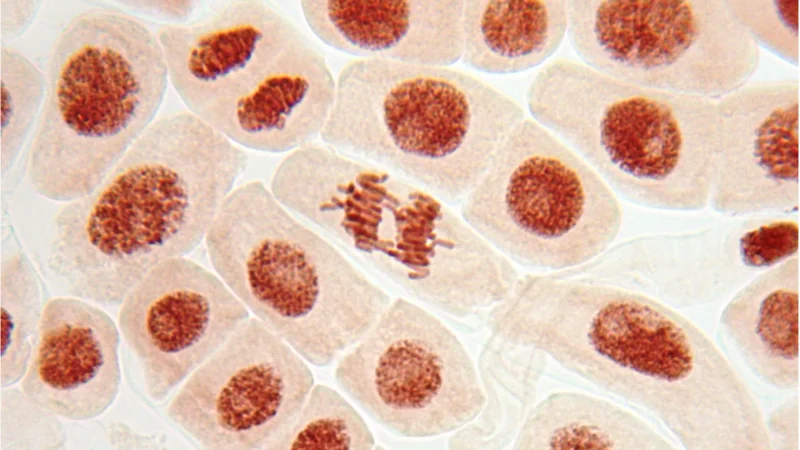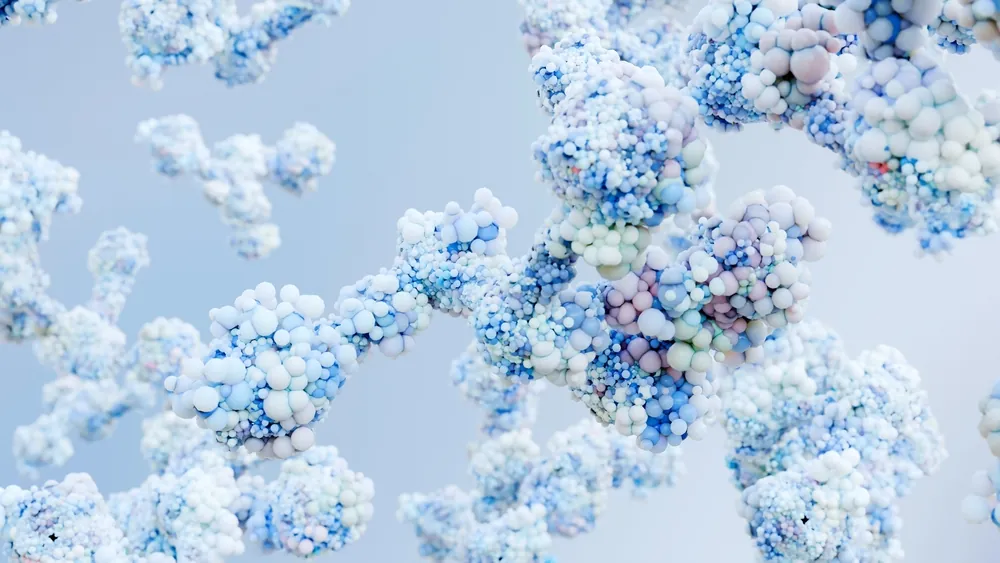A preprint published in bioRxiv has shown the mechanisms by which cancer handles the protein dysfunction brought about by its own mutational load and how these mechanisms are different from ordinary proteostasis machinery.
A highly variable burden
Previous research has shown that tumors vary widely in their numbers of mutations. Some cells in a single tumor have a handful, while others have tens of thousands of individual mutations [1].
This paper largely treats cancer as its own organism, asexually reproducing in the way that bacteria do. The resulting lack of recombination causes beneficial (from the cancer’s point of view) and harmful mutations to become embedded in the same genomes. Combined with a lack of evolutionary selection pressure, this causes cancers to accumulate deleterious mutations over time [2].
Previous research has questioned how much damage these mutations actually do to cancers [3], and this paper builds upon that research by asking a related question: if cancers are accumulating mutations that cause aberrant, misfolded proteins to accumulate as well, how do they handle these misfolded proteins in a way that keeps them alive?
Proteostasis for cancer
While the loss of proteostasis is an issue for healthy cells, it must also be an issue for cancerous cells as well. Therefore, the researchers reasoned, the organelles responsible for handling misfolded proteins, the proteasome, must be particularly active in cancer.
They tested this hypothesis by examining the mutational load of cancer cells and using computer modeling to compare this load to the upregulation of proteostasis-related genes. Their results were as expected: an increase in deleterious mutations was accompanied by increased activity of proteostasis machinery. They also found that protein translation, DNA repair, and RNA splicing (the spliceosome) were upregulated, mirroring previous research suggesting that these aspects of cells are upregulated under stressful conditions [4].
With these results in hand, the researchers further hypothesized that the upregulated spliceosome was preventing mutations from misfolding proteins to begin with. Normally, DNA is transcribed into proteins through messenger RNA, but in this case, the message is being silenced before even being transcribed in a process called intron retention [5].
The researchers found that this was the case by examining gene expression and alternative splicing events. They found that the more mutations a cancerous cell had, the more likely it was that reads of its DNA were affected by intron retention rather than actually being expressed. Much of this silencing activity was related to genes related to cytoplasmic ribosomes, which are responsible for protein construction; the researchers found it likely that this prevents further protein misfolding.
Interestingly, the researchers also noted that while cancers may not be well-selected through evolutionary pressure to remove negative mutations, they are possibly selected to be able to deal with the results of these mutations, as cells without the ability to handle them would die off.
Conclusion
This research highlights two interesting points, both of which are critical for human health in opposing ways. Primarily, it highlights a potential attack vector against a wide variety of cancers; the researchers found that cancer type was not correlated with mutational load. It may be possible to attack protein folding machinery in a way that affects cancers far more than healthy cells, providing similar effects to chemotherapy or radiotherapy; right now, this approach is only being used against myeloma [6].
On the other hand, it provides an interesting avenue of research into genome-related proteostasis disorders in non-cancerous but aging cells, which deal with protein misfolding slightly differently; most healthy cells will undergo programmed death (apoptosis) instead of suffering under a heavy load. If cancerous cells can stay alive while experiencing so much genomic instability, this may be an ability that can be transferred to otherwise healthy somatic cells in a way that benefits the organism as a whole.
Literature
[1] Lawrence, M. S., Stojanov, P., Polak, P., Kryukov, G. V., Cibulskis, K., Sivachenko, A., … & Getz, G. (2013). Mutational heterogeneity in cancer and the search for new cancer-associated genes. Nature, 499(7457), 214-218.
[2] Tilk, S., Tkachenko, S., Curtis, C., Petrov, D. A., & McFarland, C. D. (2022). Most cancers carry a substantial deleterious load due to Hill-Robertson interference. Elife, 11, e67790.
[3] McFarland, C. D., Yaglom, J. A., Wojtkowiak, J. W., Scott, J. G., Morse, D. L., Sherman, M. Y., & Mirny, L. A. (2017). The Damaging Effect of Passenger Mutations on Cancer ProgressionDamaging Passenger Mutations in Cancer. Cancer research, 77(18), 4763-4772.
[4] Dutertre, M., Sanchez, G., Barbier, J., Corcos, L., & Auboeuf, D. (2011). The emerging role of pre-messenger RNA splicing in stress responses: sending alternative messages and silent messengers. RNA biology, 8(5), 740-747.
[5] Lindeboom, R. G., Supek, F., & Lehner, B. (2016). The rules and impact of nonsense-mediated mRNA decay in human cancers. Nature genetics, 48(10), 1112-1118.
[6] Manasanch, E. E., & Orlowski, R. Z. (2017). Proteasome inhibitors in cancer therapy. Nature reviews Clinical oncology, 14(7), 417-433.





